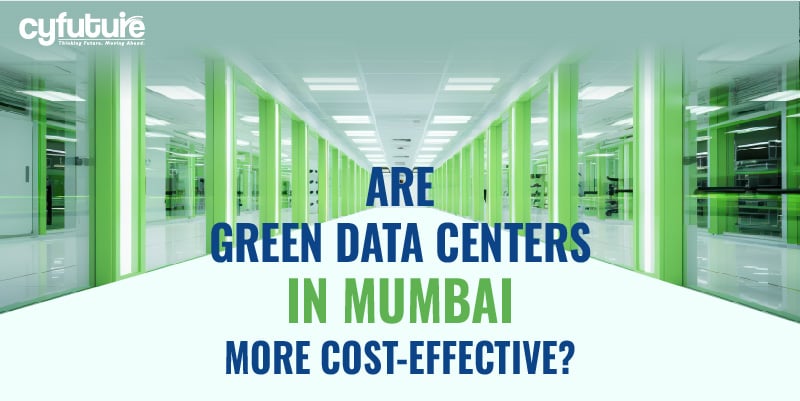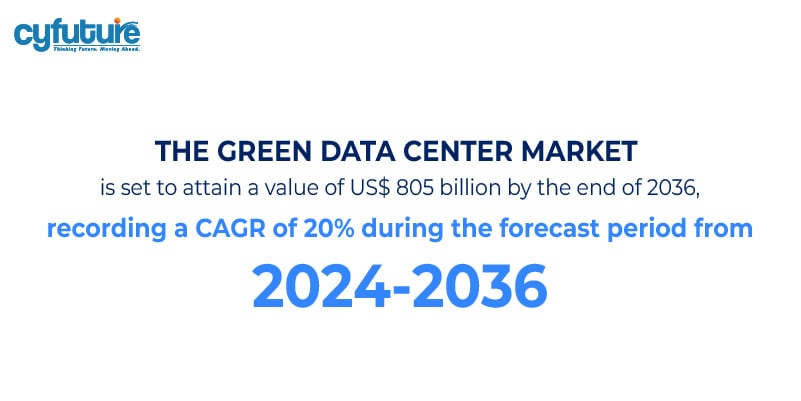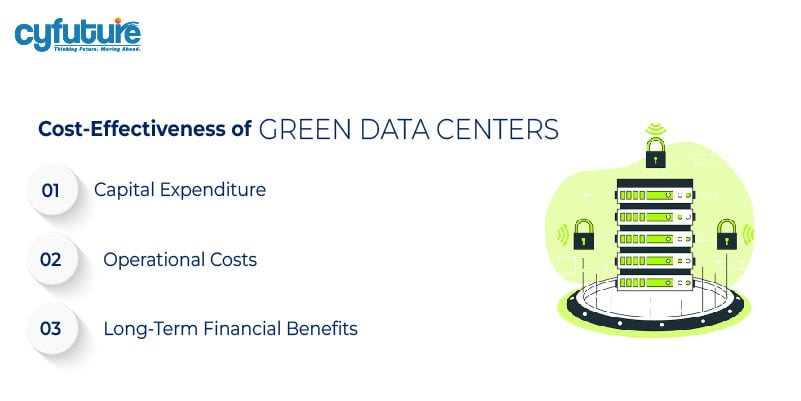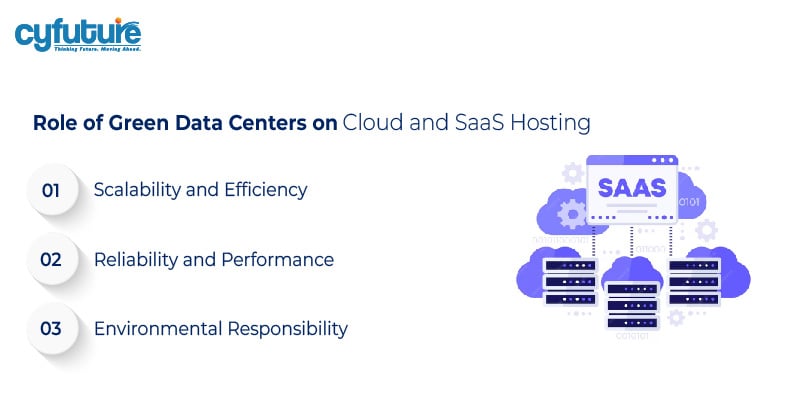-
Get Cloud GPU Server - Register Now!
Toggle navigation

The booming digital demand has grown manifold for storing and managing data. As businesses pivot towards digital transformation, data centers have become the cornerstone of modern enterprises. Amidst them, green data centers have surely emerged as one of the revolutionary paradigms, especially in busy metropolises like Mumbai.
Are green data centers affordable in the digital age? This is one of the key questions brought along by the pursuit of sustainability. Being strategic in location and with reliable infrastructure, understanding the economics of green data centers in the city is important for Mumbai, as it has become a hub for data centers.
Solutions for the same, therefore, have wide ramifications concerning the environment and generations to come, apart from the financial decisions of an enterprise. In this comprehensive blog post, we will look at the several aspects of cost-effectiveness associated with green data centers in Mumbai.
However, let’s take a look into a few stats and data before delving deep.

Now, let’s delve into the deep knowledge pool!
Green data centers are designed specifically with the environment in mind. Advanced technologies and methods reduce energy use, lower carbon footprints, and optimize resource utilization. The principal components of the green data center are renewable energy sources, efficient cooling systems, sophisticated power management techniques, and sustainable building materials.
The rapid increase in demand for digital services in Mumbai has resulted in the mushrooming of data centers. At this rate, though, things do not look very environmentally friendly. Conventionally designed data centers have a very high consumption of energy, which accounts for considerable greenhouse gas emissions. Green data centers, therefore, stand as a paradigm shift in the face of these challenges and offer a realistic option toward lessening environmental impacts while assuring enterprises of operational efficiency.

Cost-effectiveness in Mumbai for green data centers may be considered from three lenses: initial capital expenditure, operation costs, and long-term financial benefits.
The green data center usually requires more considerable investment in the very beginning compared to conventional ones. The majority of this investment is concentrated in energy-efficient technologies, integration with renewable energy sources, and retrofitting. Such an example is that solar panels or wind turbines alone require massive capitalization. Also, the inclusion of such advanced cooling systems as liquid cooling and free cooling increases preliminary costs even higher.
This can be partly offset by government incentives and subsidies that encourage firms to switch to renewable sources and other sustainable technologies. The government of India has framed several policies and schemes to incentivize business houses the adopt green technologies, which helps reduce part of the burden.
One of the strongest reasons why green data centers in India make a lot of sense is that they can help an organization bring down operational costs drastically. Conventionally, the data center has been power-intensive, with the cooling systems accounting for the lion’s share. Green data centers in Mumbai use energy-efficient cooling solutions combined with renewable sources of energy that can result in considerable savings on electricity bills.
For example, free cooling cuts energy consumption by as much as 70% by relying on outside air to lower the temperature inside a data center. The deployment of energy-efficient server technologies and power management systems optimizes energy use to reduce operations costs. Over time, these savings can balance out the high initial capital expenditure, making green data centers even more economical.
With green data centers in Mumbai, the financial long-term benefits could be increased and exceed the initial cost savings. Organizations that adopt green data centers will be able to improve their corporate reputation and brand image in the following ways: first, in a day when consumers and stakeholders are increasingly conscious of environmental sustainability, the demonstration of concerns for green best practices can confer competitive advantages and even foster customer loyalty.
Secondly, green data centers in Mumbai reduce the risk of compliance costs brought about by regulatory bodies: as governments around the world set firmer regulations on carbon emissions and energy efficiency, companies operating traditional data centers are likely to face huge compliance costs. Early adaption to green data centers in India would keep businesses out of such regulatory challenges and further eliminate any possible fines.
Thirdly, green data centers in Mumbai foster innovation and operational efficiency. The combination of innovative technologies along with sustainable best practices in operation can spur innovation, streamline operations, and eventually improve the bottom line of business performance. All this could eventually be translated into profitability and sound financial sustainability in the long run.
Mumbai, being the financial capital of India, presents a unique strategic advantage for the proliferation of green data centers. The infrastructure, strategic location of the city, and burgeoning demand for digital services make it an ideal destination for investment in data centers. In addition, the policies and initiatives of Mumbai regarding the promotion of renewable energy and sustainability raise a stronger case for green data centers in India.
Infrastructure facilities are well-developed in Mumbai, and its connectivity is very good, so the place has these vital ingredients needed for the data center to function uninterruptedly. A long network of fibrotic cables, a reliable power supply, and proximity to undersea cable landing stations guarantee high-speed data transmission with very low latency. In cloud services or SaaS hosting, these are extremely important, owing to the need for seamless connectivity with low latency for enhanced performance.
The geographical positioning of Mumbai holds much potential in the application of renewable sources of energy. The city enjoys adequate sunlight throughout the year, making it suitable for generating energy through solar means. More importantly, there is also a possibility of exploiting wind energy due to coastal winds. Green data centers in Mumbai can reduce reliance on conventional energy and lower the carbon footprint by availing these renewable sources of energy.
The government has taken encouraging steps toward promoting renewable energy and sustainable practices, be it the Indian government or the state government of Maharashtra. The policy measures taken by the government can substantially reduce the financial burden of businesses investing in green data centers in India and enhance their cost-effectiveness in the following ways: subsidies on solar and wind energy projects; tax incentives for green technologies; and mandates for energy-efficient building practices.

With the rapid growth in cloud services and SaaS hosting, demand for data centers in Mumbai has increased rapidly. The scalable, efficient, and reliable data center infrastructure acquires critical importance as companies increasingly begin to move to cloud-based operations. Green data centers in Mumbai are uniquely positioned to meet this demand while addressing the environmental and cost challenges associated with traditional data centers.
Green data centers in Mumbai are built to be very scalable and efficient. On the back of modular designs integrated with advanced cooling technologies, these data centers would comfortably scale up their operations without any energy wastage. This scalability is very fundamental to cloud services or SaaS hosting, which require flexible, dynamic infrastructures to support variable workloads and user demands.
In the case of cloud services and SaaS hosting, reliability and performance are some of the major factors that data centers should consider. The consequences of downtime or latency may be disastrous for business enterprises and end-users. Green data centers in Mumbai, with power efficiency and the latest technologies in focus, assure better performance and reliability. For instance, the deployment of duplicate power systems and a mechanism for advanced cooling will reduce the chances of failure and support continuous performance.
The wider their footprint in terms of environmental impact, the more cloud services and SaaS hosting businesses are adopting. Green data centers in Mumbai have emerged as a better solution to this problem, as they minimize energy consumption and reduce carbon emissions. Green data centers help businesses exhibit their role in environmental responsibility and further align business operations with international goals on sustainability.
Green data centers in Mumbai will be more cost-effective in three aspects: capital expenditure at the very beginning, operational costs, and financial benefits in the long run. Even though a greener data center needs a much higher initial investment, huge operation cost savings, added to the long-term financial and reputational benefit, will make it very attractive to any business.
Additionally, the key strategic advantage locational factors positioning Mumbai in the frontline include robust infrastructure, potential renewable energy sources, and supportive policy measures. Green data centers in Mumbai will be well-placed to address demands in a sustainable and cost-efficient manner as demands for cloud services and SaaS hosting spring up from every part of the country.
While companies will look to bring cost savings and operational efficiency with the adoption of green data centers in Mumbai, it’s a way to contribute toward a greener, more sustainable, and more resilient future. The changeover of Mumbai to Green Data Centers in these rapidly changing digital landscapes would be an investment that is strategic, future-ready, and fully in sync with the compulsion for economies and ecologies.